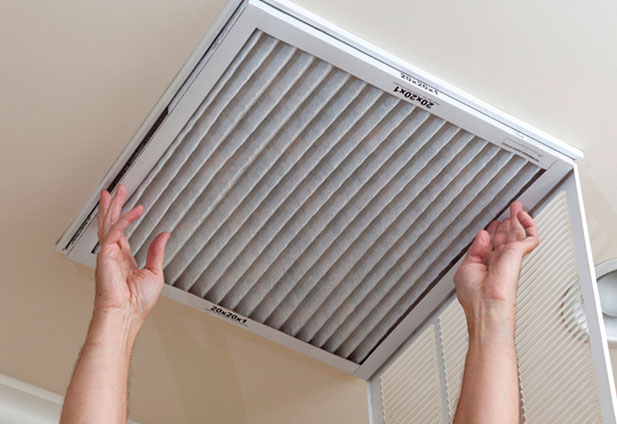Air Filters and You

What would you say if I told you that the air inside your home is more contaminated than the air outside?
Indoor air quality may not be as flashy as furnaces or boilers, but air purification systems are actually very important and can also affect your health.
If you think about how a furnace or boiler works, a flame heats the water or air and is pushed throughout the home. This process of burning fuel for heat, by its very nature, puts particulates and pollution into a home's air. HVAC venting systems reduce much of the hazard, but no venting system is perfect. Therefore it becomes paramount that a home has a proper air filtration system to ensure clean indoor air for all inhabitants.
Distilled to its simplest form, all air filters are a medium through which air passes. Layers of fine mesh—often made of paper, foam or cotton—capture particulates like dust and pollen in the air. This basic technology works in a home the same as it works for a car or even a respirator mask. More advanced air filtration systems use electrical currents to capture smaller and smaller particles. The addition of fans increases the volume of captured particulates.
Air filters are rated based on the percentage and size of the pollutants they capture. Ratings classes range from G1 to H14. Class G1 filters, for example, capture 65 percent of pollutants which measure five micrometers and larger. A HEPA filter is the highest classification of air filters, rating H13 or H14. An H14 HEPA filter traps 99.995 percent of all particulates measuring as small as 0.3 micrometers. Dust mites and allergens often measure as small as 0.3 micrometers, so HEPA filtration can be vital for those prone to allergies.
Whether you're looking to get proactive about spring allergies or just remembering that you haven't changed your filter in years, we can help you find the perfect product to make your home healthier and happier.


